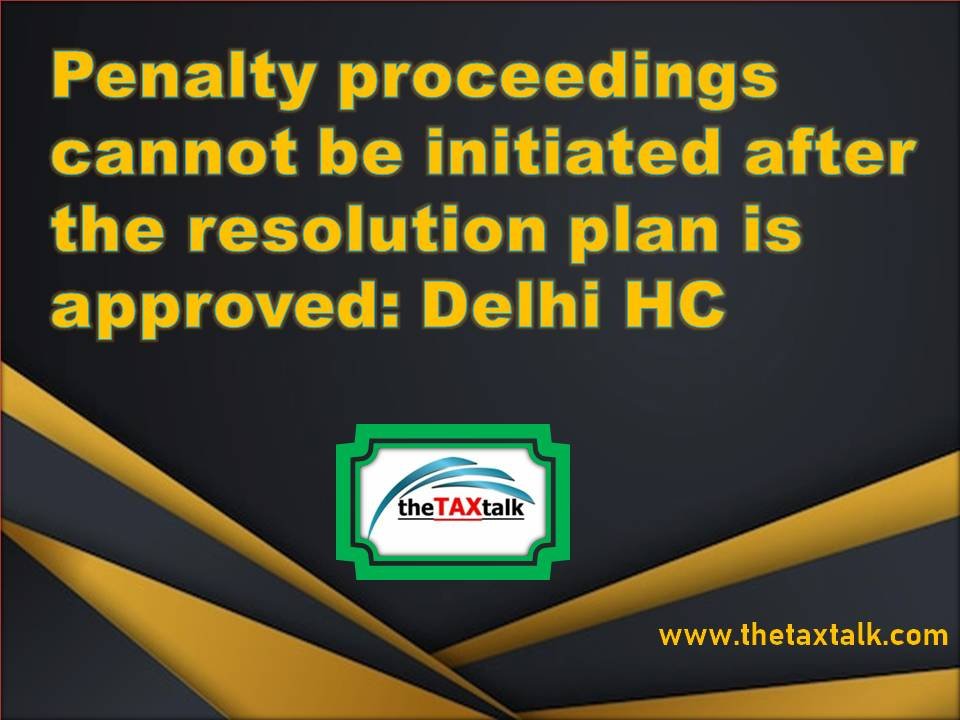![]()
Penalty proceedings cannot be initiated after the resolution plan is approved: Delhi HC
M Tech Developers Pvt. Ltd. Versus National Faceless Assessment Centre Case No.: W.P.(C) 15567/2022
Facts:
- The petitioner/assessee has challenged the notices issued under Section 144B of the Income Tax Act, 1961, pertaining to Assessment Year 2021–22, as well as the consequential notices issued under Sections 143(2) and 142(1) of the Income Tax Act.
- The challenge was essentially mounted on the basis of Section 31 of the Insolvency and Bankruptcy Code, 2016, with the petitioner contending that once the resolution plan came to be duly accepted, the bar created in terms of Section 31 of the IBC would apply. The respondent or department would be deprived of the jurisdiction or authority to reopen or assess income for any period prior to the approval of the resolution plan.
- The petitioner contended that the Resolution Professional appointed pursuant to the commencement of CIRP on November 23, 2020, informed the Income Tax authorities of the pendency of proceedings before the NCLT. This was followed by a communication dated January 28, 2021, in which the RP is stated to have conveyed a request to the Income Tax authorities to lodge their claims in accordance with the provisions of the IBC.
- The assessee argued that the resolution plan, once approved, would bring the curtains down on any claims pertaining to a period prior to the approval of the RP and is no longer res integra.
Hon Delhi HC held as below:
- We find ourselves unable to sustain that line of reasoning, bearing in mind the undisputable legal position which we obtain in light of the scheme of the IBC and which fails to incorporate any distinction between voluntary and involuntary corporate insolvency.
- As we read the provisions of the Act, the IBC does not erect different levels of protection or insulation dependent upon whether corporate insolvency has been initiated voluntarily or on the basis of a petition referable to Section 7 of the IBC.
- An action or recourse would clearly be barred by Section 31 of the IBC, which binds all creditors of the corporate debtor, including the Central and State Governments or any other local authority to whom a debt is owed. A Section 144B action is what the Supreme Court frowned upon and chose to describe as the “hydra head,” thus being contrary to the clean slate principle that the IBC advocates.
- As per Section 144B of the Income Tax Act, proceedings for assessment, reassessment, or re-computation are initiated in terms of the faceless procedure of assessment as prescribed therein. Any effort to assess, reassess, or re-compute could tend to lean towards a re-computation of liabilities that otherwise stand frozen by virtue of the resolution plan having been approved.
- Thus NFAC cannot sustain invocation of penalty proceedings based on their own failure to lodge a claim under the IBC within time.
The copy of the order is as under:

